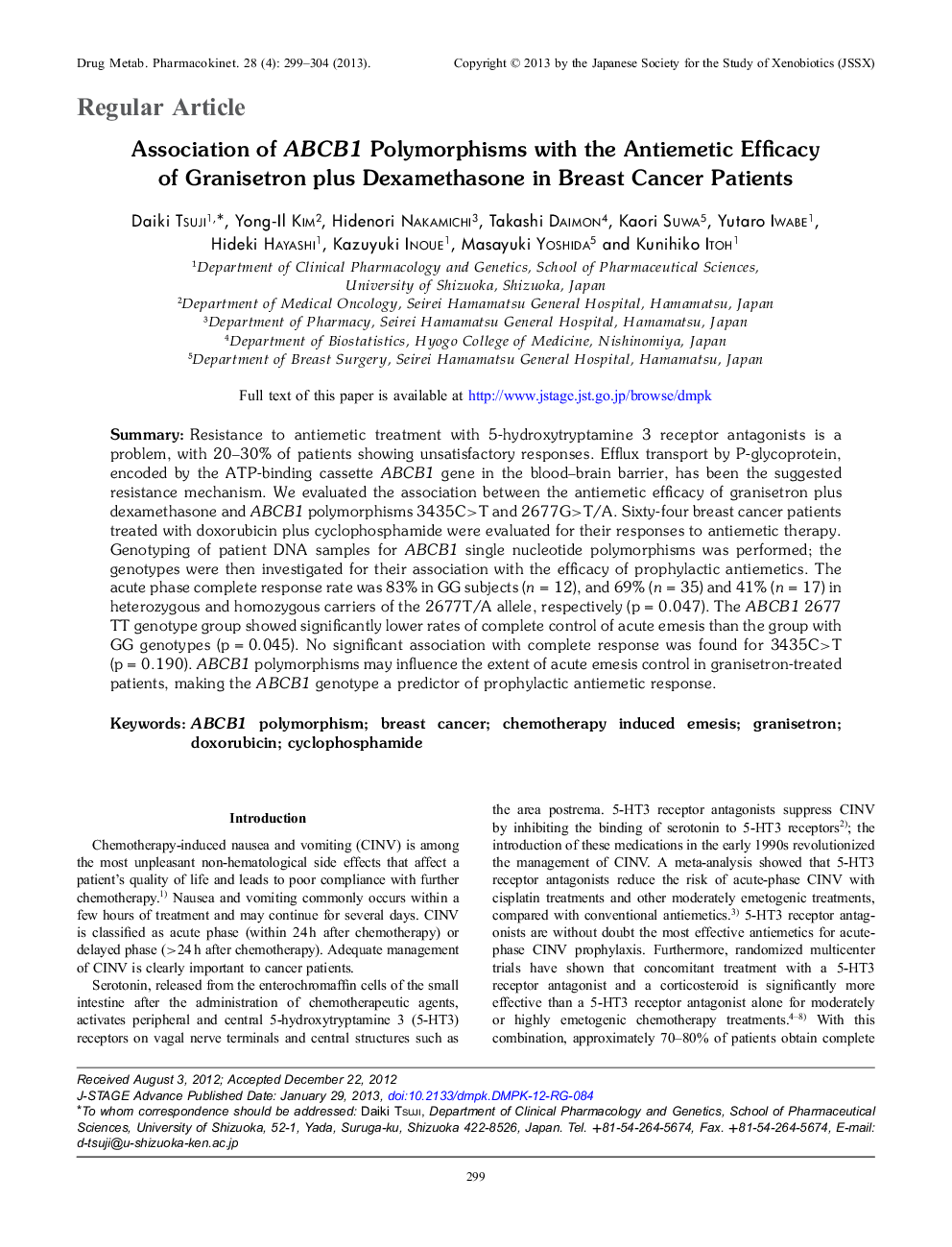| کد مقاله | کد نشریه | سال انتشار | مقاله انگلیسی | نسخه تمام متن |
|---|---|---|---|---|
| 2478916 | 1113411 | 2013 | 6 صفحه PDF | دانلود رایگان |

Summary:Resistance to antiemetic treatment with 5-hydroxytryptamine 3 receptor antagonists is a problem, with 20–30% of patients showing unsatisfactory responses. Efflux transport by P-glycoprotein, encoded by the ATP-binding cassette ABCB1 gene in the blood–brain barrier, has been the suggested resistance mechanism. We evaluated the association between the antiemetic efficacy of granisetron plus dexamethasone and ABCB1 polymorphisms 3435C > T and 2677G > T/A. Sixty-four breast cancer patients treated with doxorubicin plus cyclophosphamide were evaluated for their responses to antiemetic therapy. Genotyping of patient DNA samples for ABCB1 single nucleotide polymorphisms was performed; the genotypes were then investigated for their association with the efficacy of prophylactic antiemetics. The acute phase complete response rate was 83% in GG subjects (n = 12), and 69% (n = 35) and 41% (n = 17) in heterozygous and homozygous carriers of the 2677 T/A allele, respectively (p = 0.047). The ABCB1 2677 TT genotype group showed significantly lower rates of complete control of acute emesis than the group with GG genotypes (p = 0.045). No significant association with complete response was found for 3435C > T (p = 0.190). ABCB1 polymorphisms may influence the extent of acute emesis control in granisetron-treated patients, making the ABCB1 genotype a predictor of prophylactic antiemetic response.
Journal: Drug Metabolism and Pharmacokinetics - Volume 28, Issue 4, 2013, Pages 299-304